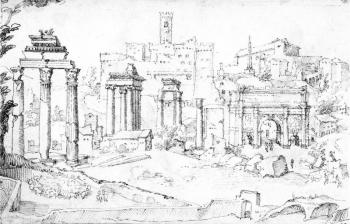American Journal of Archaeology | The Journal of the Archaeological Institute of America
You are here
Archaeology and the Anxiety of Loss: Effacing Preservation from the History of Renaissance Rome
April 2011 (115.2)
Archaeology and the Anxiety of Loss: Effacing Preservation from the History of Renaissance Rome
It is a famous paradox that Renaissance builders, despite their avowed reverence for classical antiquity, caused widespread archaeological destruction in Rome. As early as the 14th century, humanists criticized the devastation caused by new construction in the papal capital, and later archaeologists applied the scientific techniques of their new discipline to substantiate these claims. But the blanket condemnation of Renaissance destruction is both unfair and misleading. This article investigates how fear for the survival of archaeological artifacts, or the anxiety of loss, has distorted our understanding of early modern interventions on ancient sites. By drawing on new evidence for preservation practices, it explores why these were effaced from the historical record and invites us to rethink the history of archaeology in Renaissance Rome.
Archaeology and the Anxiety of Loss: Effacing Preservation from the History of Renaissance Rome
By David Karmon
American Journal of Archaeology Vol. 115, No. 2 (April 2011), pp. 159–174
DOI: 10.3764/aja.115.2.0159
© 2011 Archaeological Institute of America


